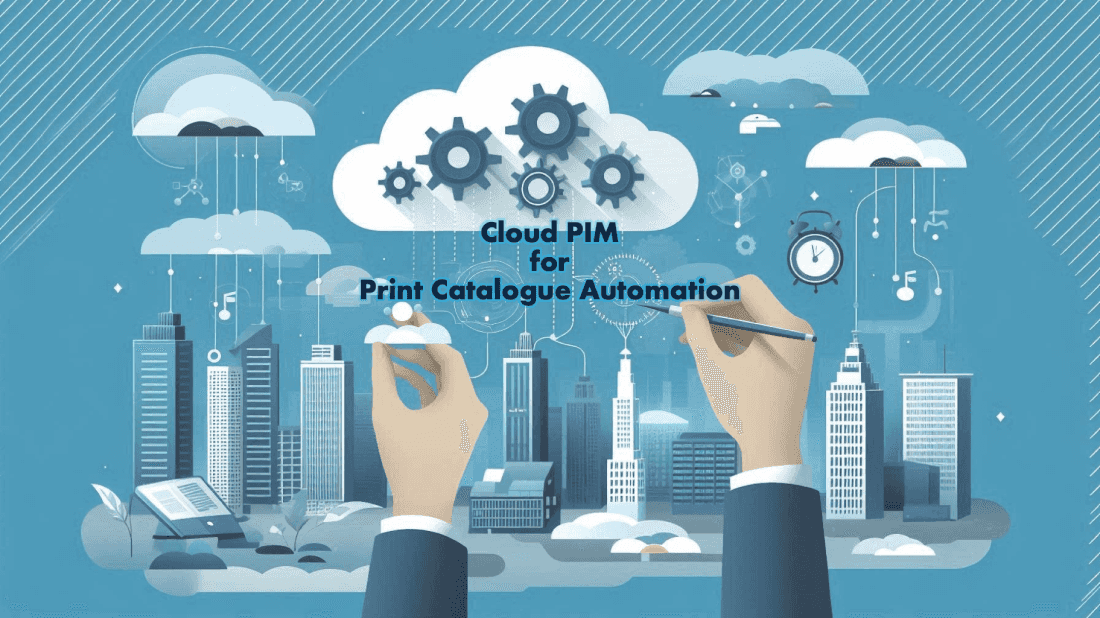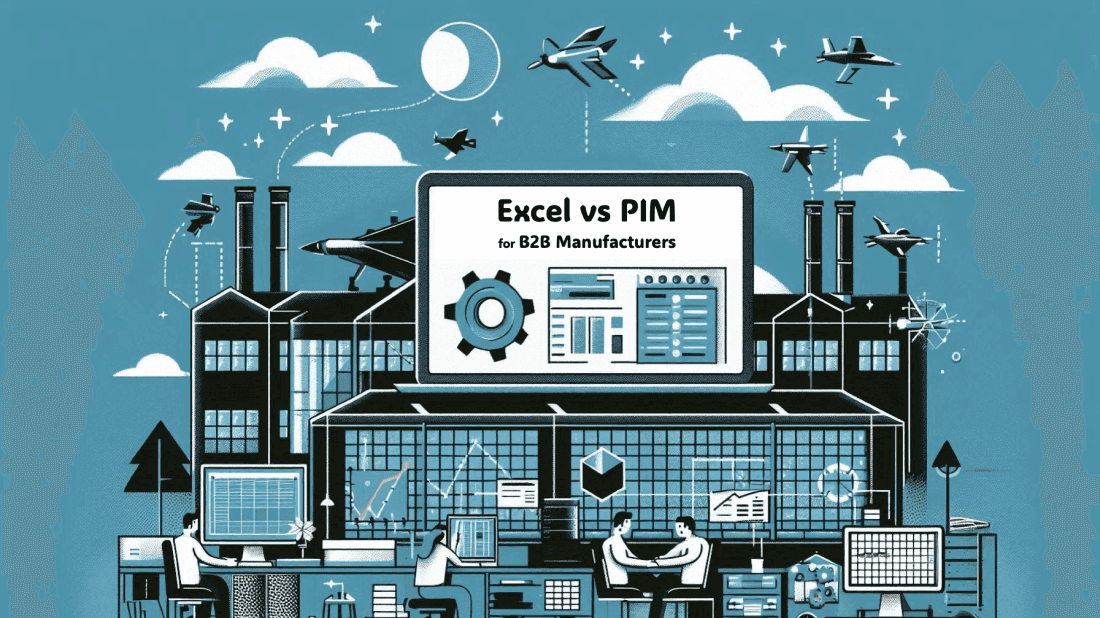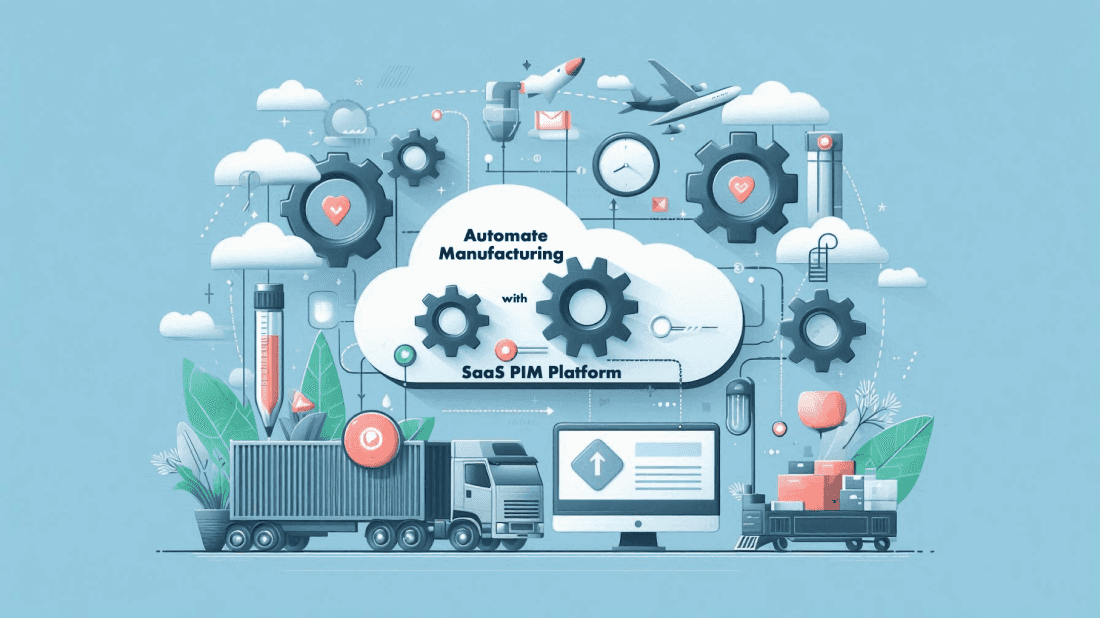May 15th, 2024
Unlocking the Benefits of PIM Systems for B2B Manufacturers in 2024
Categories:Product Information Management SystemEffectively managing product data across various channel ecosystems is crucial.
Maximizing ROI with the Best Product Information Management (PIM) Systems for B2B Manufacturers in 2024
Product Information Management (PIM) systems offer robust solutions to centralize, enrich, and distribute product data, ensuring consistency and accuracy. This article explores the ROI of implementing a PIM system and highlights the top PIM solutions for B2B manufacturers in 2024.
Benefits of Implementing a PIM System
Implementing a PIM system offers numerous benefits for B2B manufacturers:
- Data Accuracy and Consistency: PIM systems ensure that all product information is accurate and consistent across all channels, reducing errors and enhancing data reliability.
- Enhanced Efficiency: By automating data management processes, PIM systems significantly reduce the time and effort required to manage product data, allowing teams to focus on strategic tasks.
- Cost Savings: PIM systems can save manufacturers between $20,000 to $200,000 per system on integration costs by eliminating the need for multiple manual updates and reducing data errors.
- Improved Collaboration: PIM systems provide a centralized platform for all product data, enhancing collaboration between internal teams and external partners.
- Better Customer Experience: Accurate and consistent product information ensures that channel partners have the right data to serve their customers effectively, leading to improved customer satisfaction and loyalty.
- Scalability: PIM systems are designed to scale with your business, allowing you to manage an increasing volume of product data as your company grows.
- Regulatory Compliance: PIM systems help ensure that all product information meets regulatory standards, reducing the risk of non-compliance and potential penalties.
- Product Information Management Benefits: Centralizing and streamlining product information leads to improved data quality, reduced time-to-market, and enhanced customer satisfaction.
Key Features of PIM Systems
When choosing a PIM system, manufacturers should look for features such as:
- Robust Data Integration: Seamless integration with existing ERP and CRM systems.
- Scalability: The ability to handle large volumes of product data and expand as needed.
- Advanced Collaboration Tools: Features that facilitate communication and data sharing.
- Digital Asset Management (DAM): Centralized storage and management of digital assets like images and documents.
- Multi-Language Support: Capability to manage product information in multiple languages for global distribution.
- Data Governance: Strong data governance features to ensure data accuracy and compliance with industry standards.
PIM for Marketing
A PIM system is invaluable for marketing teams, as it centralizes product content and ensures consistency across all marketing channels. This centralization simplifies the creation and distribution of marketing materials, improving the overall efficiency of marketing campaigns. By using PIM data effectively, marketing teams can ensure that all product information is accurate and up-to-date, which is crucial for delivering a consistent brand message.
PIM Manufacturing
In the manufacturing industry, PIM systems play a critical role in managing product information across multiple channels. PIM tools help manufacturers streamline their product information workflows, ensuring that accurate and up-to-date product data is available to all stakeholders. This leads to improved efficiency, reduced errors, and enhanced collaboration between teams.
PIM Use Cases
There are numerous use cases for PIM systems in B2B manufacturing, including:
- Product Launches: Centralizing product data to ensure accurate and consistent information is available across all channels during a product launch.
- Supply Chain Management: Providing up-to-date product information to all supply chain partners, improving coordination and reducing errors.
- Regulatory Compliance: Ensuring that all product data meets regulatory standards, reducing the risk of non-compliance and potential penalties.
Examples of PIM Systems for B2B Manufacturers
While there are many PIM systems available, the following are some of the best options for B2B manufacturers in 2024:
- Akeneo: Akeneo helps businesses manage and enrich their product offerings across multiple channels. Its open-source framework allows extensive customization, catering to specific operational needs. Visit Akeneo
- Salsify: Salsify combines PIM and digital asset management to provide a comprehensive solution that drives sales through compelling product content. It automates syndication, enhancing operational efficiency. Visit Salsify
- Pimcore: This platform offers a robust solution for managing customer experiences and product information, supporting PIM and ecommerce integrations under one roof. Pimcore is recognized as one of the best PIM software options due to its versatility and open-source capabilities. Visit Pimcore
- Pimberly: Specializing in cloud-based PIM, Pimberly allows for quick scalability and powerful automation, making it suitable for fast-growing companies. Visit Pimberly
- inRiver: inRiver provides marketing-oriented PIM solutions that help craft compelling product stories to engage customers and drive conversions. Visit inRiver
- Syndigo: Syndigo focuses on content accuracy and syndication across retailer and distributor websites, ensuring consistency in product information. Visit Syndigo
- PIMworks: Geared towards small to medium-sized businesses, PIMworks offers an accessible platform that simplifies complex product information management tasks. Visit PIMworks
- Semarchy: Known for its data governance and master data management capabilities, Semarchy provides a strong foundation for businesses prioritizing data accuracy and compliance. Visit Semarchy
- Informatica: Offering cloud-native PIM solutions, Informatica supports large organizations managing complex product data and requiring robust integration features. Visit Informatica
- Stibo Systems: Stibo Systems delivers a PIM solution integrated with multi-domain MDM, ideal for enterprises with complex data needs and requiring extensive data transparency. Visit Stibo Systems
Best Practices for Implementing a PIM System
To maximize the benefits of a PIM system, B2B manufacturers should follow these best practices:
- Define Clear Objectives: Establish clear goals for what you want to achieve with your PIM system.
- Engage Stakeholders: Involve all relevant stakeholders in the selection and implementation process to ensure buy-in and alignment.
- Focus on Data Quality: Implement strong data governance practices to ensure the accuracy and consistency of your product data.
- Leverage Advanced Features: Take full advantage of the advanced features offered by your PIM system, such as multi-language support and digital asset management.
- Monitor and Optimize: Continuously monitor the performance of your PIM system and make adjustments as needed to optimize its effectiveness.
Neurologik ProductHub
At Neurologik.io, we offer the ProductHub solution, an all-in-one PIM, PDM, MDM, and DAM system designed specifically for B2B manufacturers. Our platform centralizes, enriches, and synchronizes product data, ensuring accuracy and consistency across all channels. By significantly reducing integration costs and enhancing operational efficiency, Neurologik.io’s ProductHub helps manufacturers maintain seamless, up-to-date product information, improving market responsiveness and driving business growth.
Request a demo to learn more about the most advanced system for B2B manufacturers.







